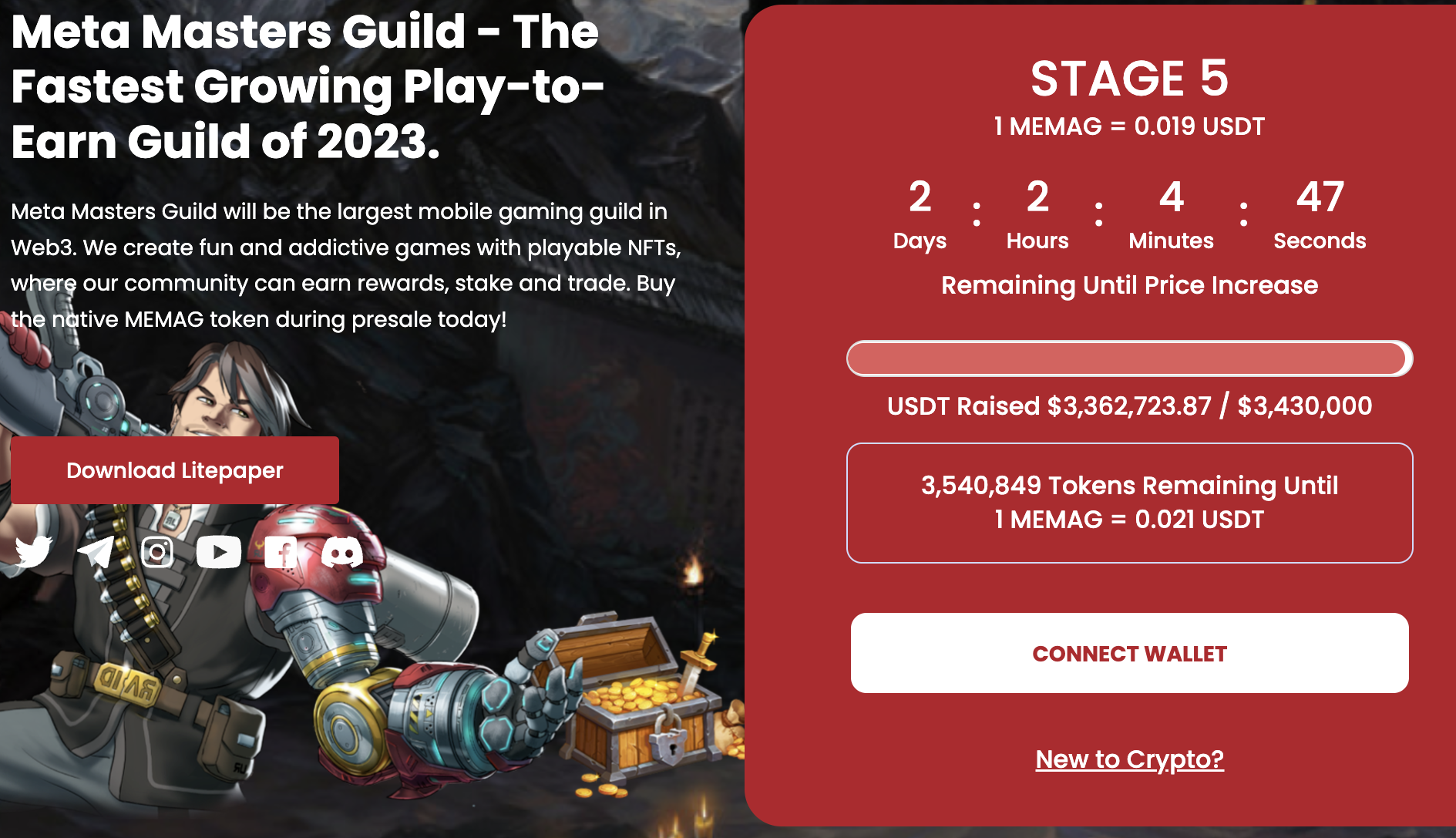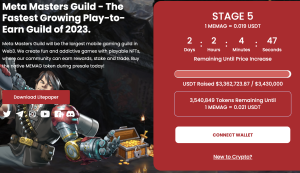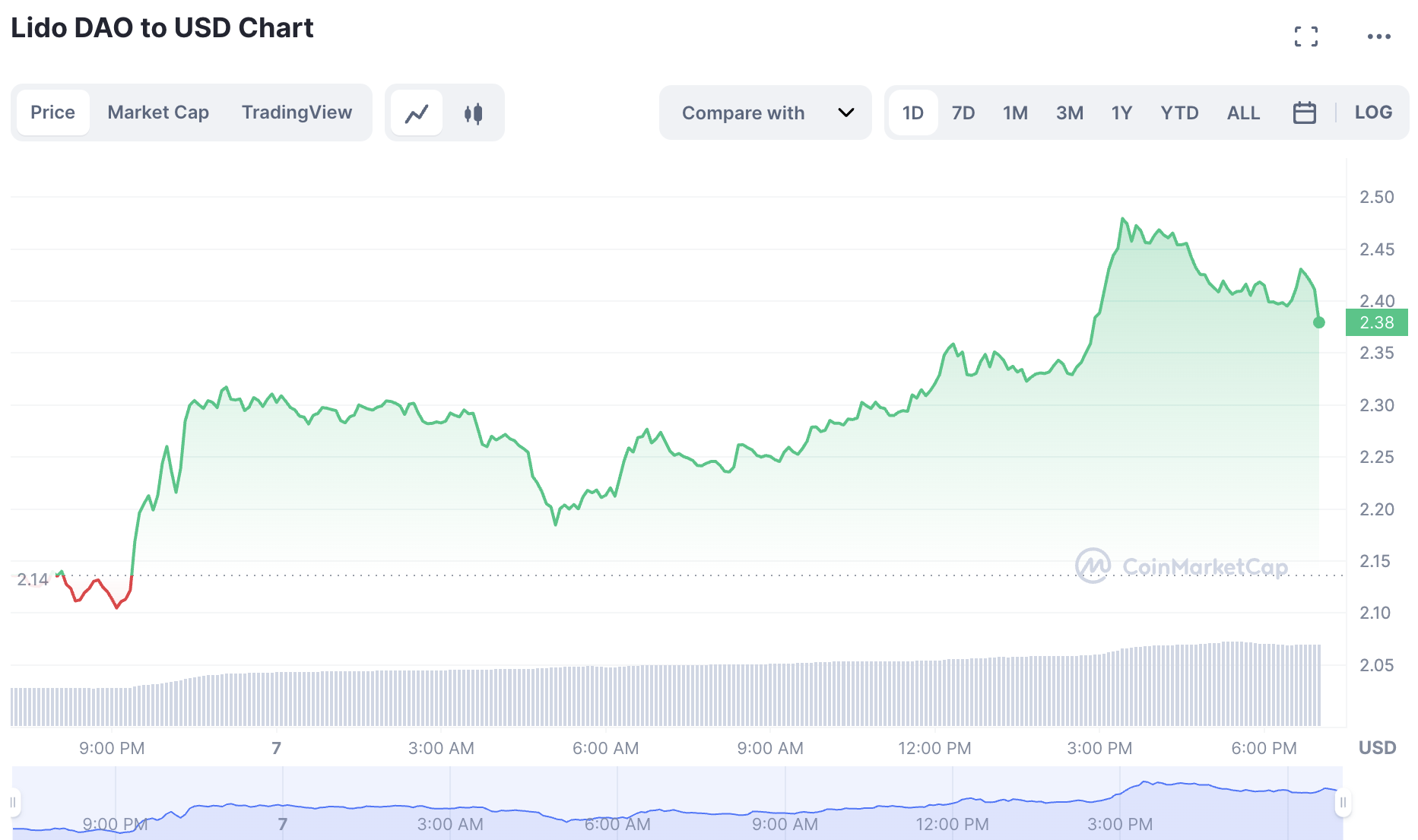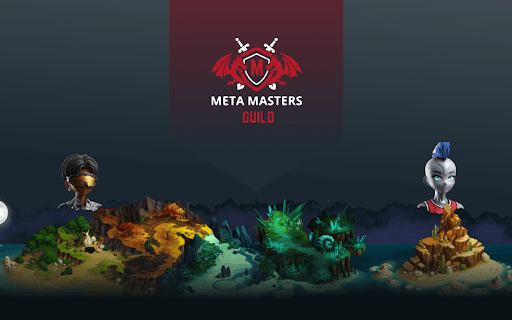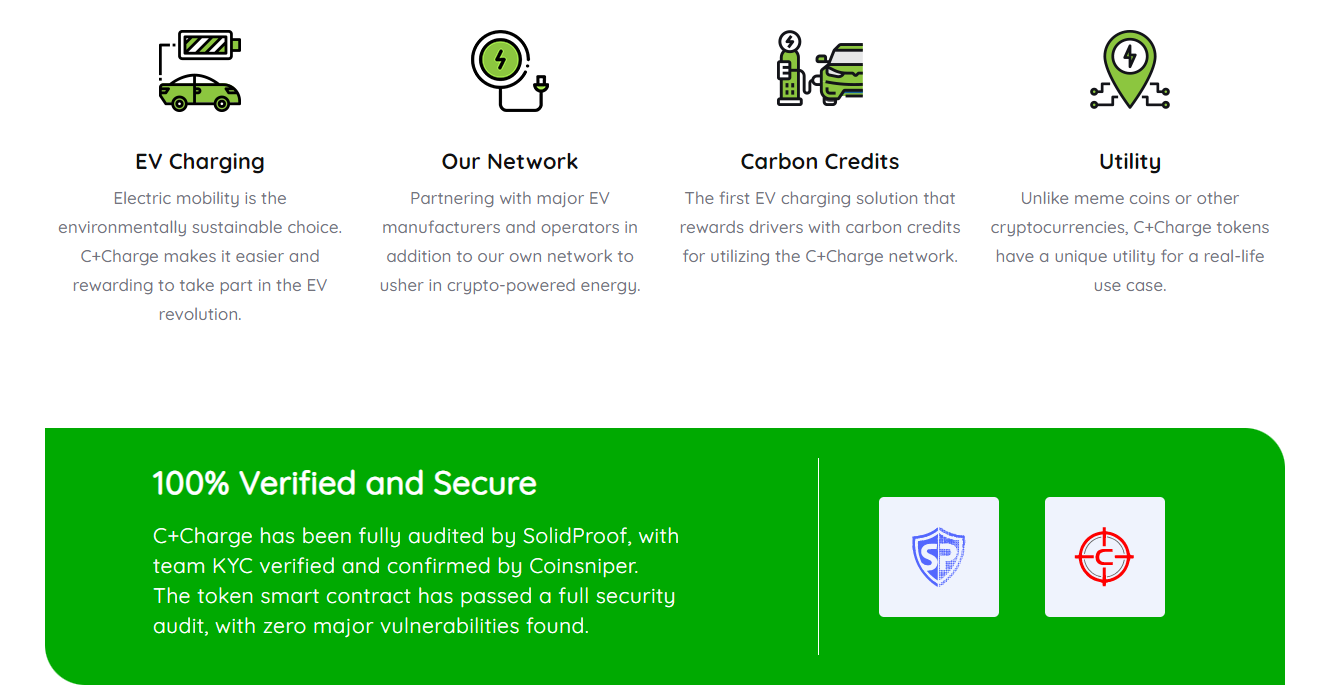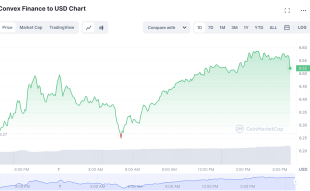Join Our Telegram channel to stay up to date on breaking news coverage
Early on February 7, major cryptocurrencies experienced negative trading as the market cap of all cryptocurrencies fell by 0.60 percent from the previous day to $1.06 trillion. The previous day’s cryptocurrency trading volume increased by 4.18 percent to $49.85 billion.
DeFi’s 24-hour volume was $4.90 billion, or 9.83 percent, of the market’s overall volume. The total volume of stablecoins was $44.74 billion, or 89.73% of the 24-hour volume of the entire crypto market.
Frax Share (FXS)
The first stablecoin system using a fractional algorithm is called the Frax Protocol. Open-source, completely on-chain, and permissionless, Frax is presently deployed using Ethereum. The Frax protocol’s primary objective is to replace digital assets with fixed supply, like Bitcoin, with a highly scalable, decentralized, algorithmic currency.
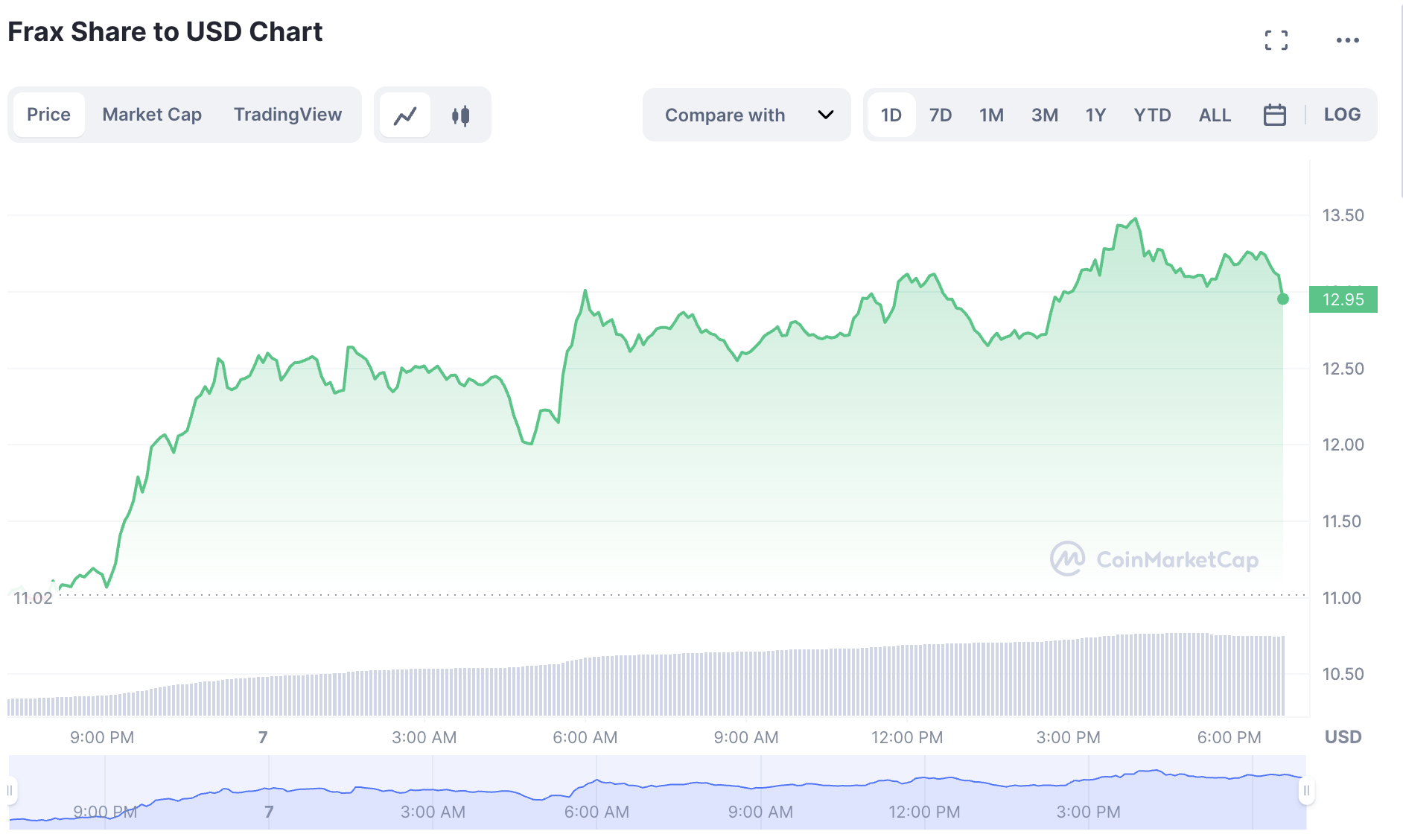
The current live Frax stock price is USD 13.16 with a USD 23,58,10,892 24-hour trading volume. We continuously update the FXS to the USD exchange rate. Frax Share has increased by 28.78% over the last day. With a live market valuation of USD 96,56,86,460, its current position is very high. The total supply of FXS coins is unknown but is currently 7,34,03,561.
The Frax Protocol was created by American programmer Sam Kazemian. In 2019, he had the original concept for a fractional-algorithmic stablecoin.
The original Frax engineering team included Jason Huan and Travis Moore. Sam Kazemian developed the idea after noting that while stablecoins were rapidly growing, none of them included an algorithmic monetary policy and collateralization. Entirely algorithmic monetary and fiscal policy projects had flopped or been closed without gaining any traction. To gauge the market’s trust in a partially algorithmic and partially collateralized stablecoin, Frax was created.
Lido DAO (LDO)
A decentralized staking protocol called The Lido Project issues derivative currencies that traders may stake on decentralized finance (DeFi) protocols including Yarn, Curve, and Maker to increase market liquidity in the cryptocurrency space.
With the use of its native token, LDO, the Lido DAO governs the platform and offers voting privileges to its proposals. The Lido DAO token will cost $2.92 on February 6, 2023, a rise of 10% in just three days from its current price of $2.65. It is crucial to keep in mind that the cryptocurrency market is notorious for its instability & unpredictability, so the price may behave differently.
The Lido project’s ability to enable users to get liquid staking benefits without being required to maintain the staked network for Ethereum 2.0 is what makes it successful from a technical standpoint. ParaFi Capital, Semantic Venture Partners, Libertas Capital, and other illustrious investors and DeFi industry leaders are among the members of the Lido DAO, which has a proven track record of success.
Users’ influence as well as voting power are proportionate to their investment in the network, as each LDO token represents one vote. The Lido blockchain’s governance structure is also distinctive in that it may be improved and changed without having an impact on other adaptive protocols.
Meta Masters Guild (MEMAG)
The seven-stage sale of The Meta Masters Guild’s token $MEMAG is already progressing. This “play-to-earn” cryptocurrency initiative The campaign is aiming to build a much more durable play-to-earn cryptocurrency in the market with a relatively modest objective of generating $4.97 million.
By developing a strategy and platform focused on long-term growth, the initiative aims to outperform Axis Infinity’s early successes. The management is steering clear of economic systems that are fleeting and can draw punters eager to make fast cash but who have little commitment to or interest in the games.
To do this, Meta Kart Racers, the first game, will be crucial. It will be available on mobile devices with a web version and be free to play with a variety of play-and-earn possibilities. Players may buy and improve their drivers as well as karts at the MEMAG Store with gems or MEMAG tokens.
Meta Masters Guild has the potential to grow 10x faster than the next play-to-earn platform this year as it aspires to become the biggest cellular casual gameplay crypto platform to engage.
Fight Out (FGHT)
Fight Out is initiating a seven-stage presale of their token, FGHT, identical to the MEMAG voucher above. Over $3.35 million has already been raised during the pre-sale, and more are anticipated during the closing hours.
With a token price as low as $0.0166 right now, investors who invest opportunity to receive up to 50% in bonus assets, based on the size of the purchase and how long they decide to hold on to their tokens.
Through its business app, which creates a digital fitness portfolio based on activity, effort, sleeps, and nutrition and offers customized training regimens to each user, The FightOut Project seeks to transform the fitness industry.
The program also has a rewards system whereby users can do exercises at home or in the gym to collect REPS, an off-chain coin. These REPS may be used to pay for reduced app subscriptions and gym memberships, schedule personal training sessions and buy clothing, vitamins, and equipment.
Visit the official website for more information.
C+ charge (CCHG)
A platform built on a cryptocurrency called C+Charge seeks to improve the way electric vehicle (EV) owners pay for their vehicles while also giving them incentives. The platform will develop a mobile application with a virtual wallet to use its native currency, CCHG, to pay for EV costs at international charging stations.
Additionally, C+Charge wants to create a P2P payment system that makes charging an EV easier and less expensive while simultaneously rewarding people with carbon offsets for being environmentally responsible. The platform wants to make it easier for companies and landlords to install charging points on their grounds without charging more for non-EV vehicles.
At their official site, customers may presently purchase CCHG tokens for 0.013 USDT during the pre-sale period for the tokens. The pre-sale has already earned $380k to date and is anticipated to continue for another 54 days. The token will then list for the first time on CEX on March 31.
Visit C+Charge’s official website for more details.
Robotera (TARO)
The cutting-edge blockchain-based sandbox game Robotera immerses players in the virtual world of Taro, where they assume the role of intelligent robots. The game encourages participants to cooperate to develop their lands and gain incentives given out in TARO, the platform’s native token, by using NFTs to represent players’ robots and virtual property.
The game also provides users with a variety of ways to make money, like renting out virtual houses, developing their activities, and taking part in various events. Based on the Ethereum blockchain, the platform’s metaverse enables player socializing and customization.
TARO tokens may be purchased for 0.020 USDT right now in Phase 1, but when the pre-sale progresses to further pre-sales, that price will rise to 0.025 USDT. Arguably, now is the ideal opportunity for investors to purchase Taro tokens.
Final Words
Market gainers offer great insight into what the market currently values and is interested in, even though cryptocurrency presales are one of the best ways to make significant profits in the market. Nevertheless, every investment choice should be based on the study, and investors shouldn’t rely only on advice if they want to succeed.
Related Articles
Best Wallet - Diversify Your Crypto Portfolio
- Easy to Use, Feature-Driven Crypto Wallet
- Get Early Access to Upcoming Token ICOs
- Multi-Chain, Multi-Wallet, Non-Custodial
- Now On App Store, Google Play
- Stake To Earn Native Token $BEST
- 250,000+ Monthly Active Users
Join Our Telegram channel to stay up to date on breaking news coverage
